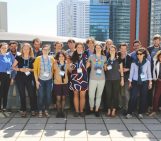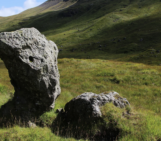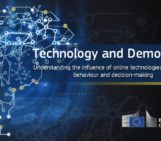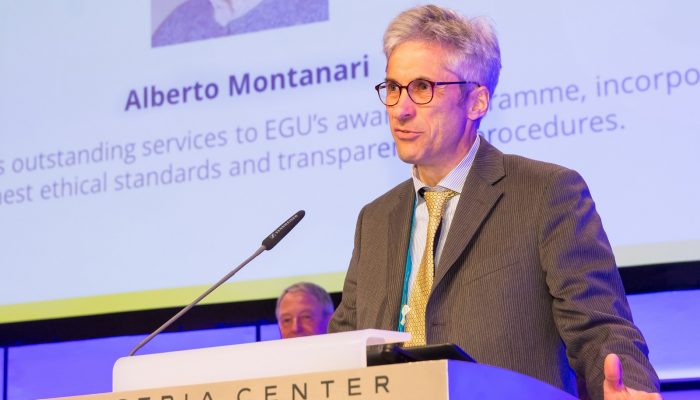
GeoTalk interviews usually feature the work of early career researchers, but this month we deviate from the standard format to speak to Alberto Montanari, president of the EGU. Alberto has a long-standing involvement with the Union, stretching back more than 15 years. Following a year as vice-president, Alberto was appointed president at this year’s General Assembly in Vienna. Here we talk to him about his plans for the Union and how the science community can get involved, European integration for the benefit of scientific research, and placing value on scientific initiatives that are hard to measure.
In case some of our readers don’t know who you are, could you introduce yourself and tell us a little about your career path so far and your involvement with the EGU over the years?
I have been a professor of water engineering and hydrology at the University of Bologna since 2001. My background is civil engineering. After finishing my master’s degree my thesis advisor suggested that I attend a PhD program. He pushed me to pursue an international vision in my research activity, something that was not frequent in Italy in the early nineties. At the time I could not communicate in English, even reading papers was a challenge for me. In 1994 I attended my first General Assembly of the European Geophysical Society (which later merged into EGU). It was love at the first glance! I was so excited by my first experience that I did not miss any EGS/EGU General Assemblies since then. Once I got a permanent position as a professor, I felt motivated to contribute to the development of EGU, to give back what I received. I served as president of the Hydrological Sciences Division, chair of the Awards Committee and now I am serving as the Union president. Let me say that EGU is great, and I am thankful to those brilliant scientists who created it! If you asked me what has been the most difficult challenge in my career so far, I would say that it was (and still is!!) to communicate in the English language 🙂
At this year’s General Assembly, you were appointed Union president (after serving as vice-president for a year). What are the main things you hope to achieve during your two-year term?
I identified a few keywords to summarize my wishes for the future of EGU:
- diversity and equality of opportunities,
- visibility of Earth, space and planetary sciences,
- European integration, and
- early career scientists.
With regard to 1, I would like to encourage diversity in the widest sense. A diverse community and diversity of opinions are vital for promoting science. As for 2, I would like to involve excellent communicators as EGU ambassadors by giving dedicated recognitions. Issue 3 is essential for promoting European and global research. At the EGU General Assembly 2019 we organized an excellent conversation on European integration with Former Italian Parliamentarian Ilaria Capua and Former Italian Prime Minister and European Commissioner Mario Monti. The amazing attendance at that event was a clear sign that many researchers were interested in the topic and that we need to follow up with more events. Finally, with regards to 4, let me say that early career scientists are the lifeblood of the Union. I am motivated to promote their efforts and amplify their voice more and more, with dedicated initiatives.
Why these in particular?
During my service with EGU I tried to listen to people as much as possible. I collected an uncountable set of opinions and views. After speaking with colleagues – and early career scientists in particular – the above keywords clearly came forward. I am happy to say that I meet an impressive number of interesting people involved with EGU and during the EGU meetings. I am motivated to further increase my efforts to speak with the community. I encourage colleagues to contact me!
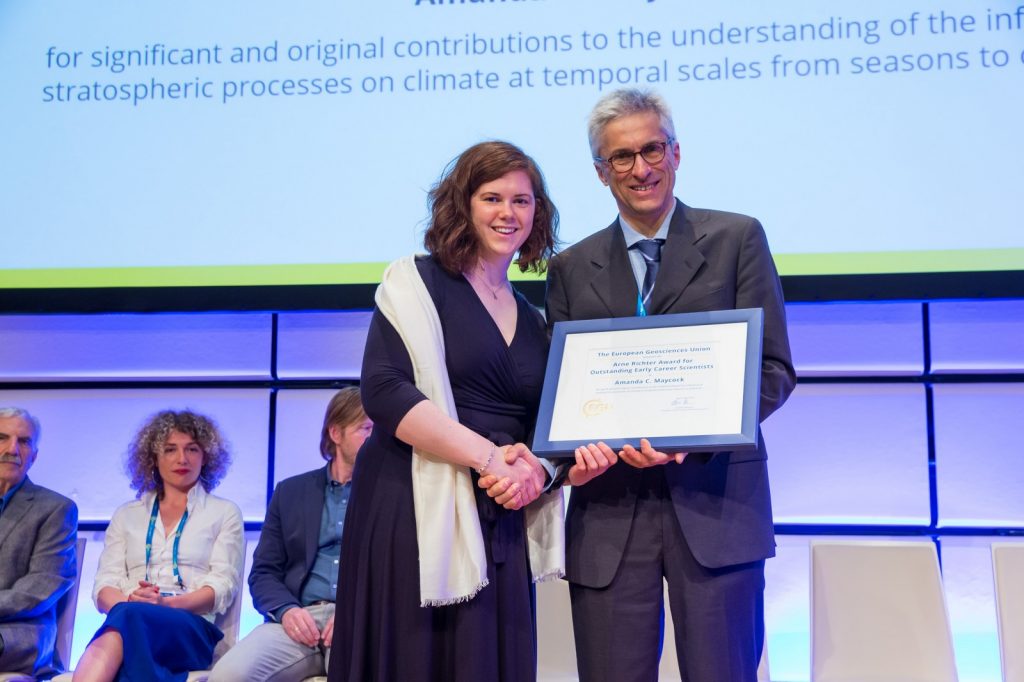
EGU President, stand along side Amanda Maycock, recipient of the 2019 Arne Richter Award for Outstanding Early Career Scientists. Credit: EGU/Pflugel
Last month, the EGU Council issued a declaration supporting a united Europe for the benefit of global scientific research and condemning “fake news”, biased reporting, social media bots and malicious state actors which threaten European integration. Why are these forces so troubling and, in your opinion, what can Union members do to address the challenges that a united Europe and scientific research face?
As I said, I firmly believe in European integration. A strong EU is beneficial to scientific research and societal development. However, such benefits are not so evident to people. I think one of the reasons is the complexity of modern society. It is a challenge for the public to understand how economy and politics work. Therefore, people hardly agree with forward looking political decisions and are tempted to support short-term strategies.
The same happens in science. Sometimes scientists speak in a language that cannot be easily understood, and therefore people are not supportive of inconvenient truths that may look obscure. In such situations fake news stories easily proliferate because they easily address people’s skepticism and concern. Such stories offer an apparently easy solution, but actually they mislead people and threaten scientific integrity and democracy. Politicians and scientists are partly responsible for this situation: sometimes they seek immediate consensus instead of looking forward and promoting transparency.
What can we do to be more constructive? At the EGU General Assembly 2019 Mario Monti replied to a question by former EGU President Günter Blöschl by suggesting, “Be yourself and tell surrounding people who you are and how the EU relates to you. And what aspects in your activity would not be there, or not be there so productively, if the EU was not there [or] if the EU was undermined”. I cannot agree more. I would additionally suggest to make it simple. Let’s use an accessible language to summarise the positive feedbacks that a strong EU and collaborative science can deliver to Europeans. Last but not least, we have to welcome diversity with a constructive attitude. Diversity – including diversity of opinions – makes science more transparent and more convincing.
On a similar note, At the EGU General Assembly 2019, you also convened a session on rewards and recognition in science for contributions that cannot be easily measured, such as engaging with the public and policy makers. In your opinion, how can the science community properly credit such contributions that are sometimes less tangible than publications, citations and grants?
I believe that the current system for academic recognition suffers from many shortcomings. Citations and bibliometric indexes give a far incomplete picture of the value of one’s contribution. We need to devise efficient methods for measuring the value of other activities, like teaching and participatory work in the community. Finally, let me quote Demetris Koutsoyiannis, a professor at the Technical University of Athens, who, in the conclusions of his talk during the above session, pointed out that “Metrics can serve as thresholds and shortlisting criteria. They are not sufficient to support final decisions, which should move away from the ‘audit culture’”.
The EGU is a bottom-up organization run primarily by its members. We’ve discussed what the Union hopes to do for its members, so I’d now like to ask how the EGU membership can take a more active role in the Union’s activities?
EGU is like a family; everyone has a role. EGU would not exist without each individual contribution. Any single person attending EGU activities is important. It is easy to get involved in EGU: just contact the relevant division president or myself. EGU is very open, and any member is welcome to test this openness; just send an email to propose your own ideas!
Interview by Olivia Trani, EGU Communications Officer

